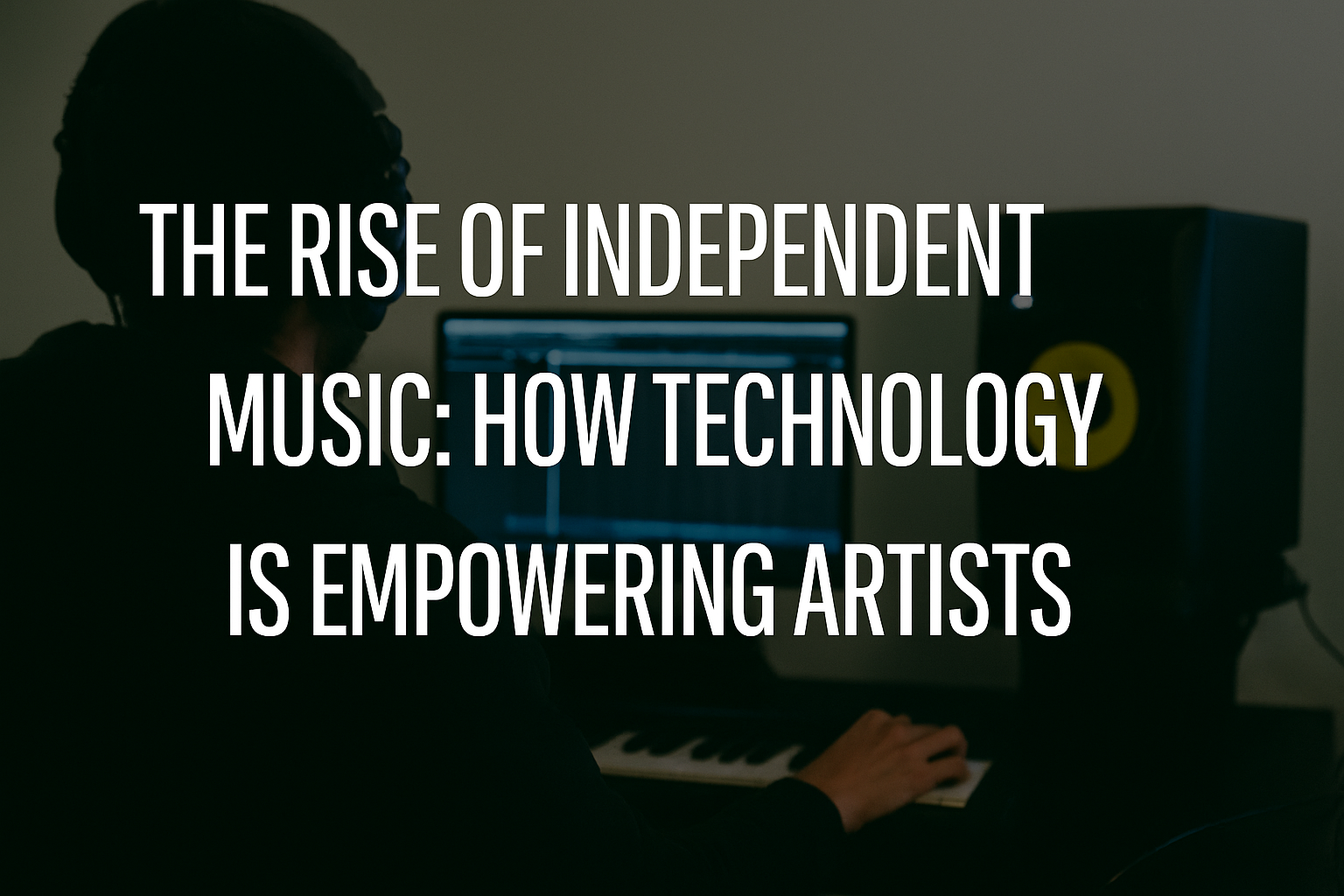The rise of independent music in 2025 marks a turning point in the global music industry. With digital platforms, affordable production tools, and social media, artists are no longer dependent on traditional record labels. Independent music has become a movement powered by technology, enabling musicians to create, distribute, and promote their work directly to listeners.
Evolution of Independent Music
Independent music has existed for decades, but until recently, it lacked mainstream exposure. Earlier, record labels controlled distribution, production budgets, and marketing access. Today, digital democratization allows any artist with a laptop and vision to share music globally. Streaming platforms like Spotify and Apple Music have leveled the field, allowing independent musicians to reach millions without middlemen.
How Technology Empowers Independent Artists
Technology has become the backbone of independent music creation. Artists now use AI-assisted tools for songwriting, beat production, and mastering. Music software such as Ableton Live and Logic Pro integrates machine learning features that adjust sound balance automatically. AI in Music Production helps artists perfect their mixes while reducing studio costs. Furthermore, platforms like SoundCloud and Bandcamp let musicians distribute songs directly and receive instant feedback from fans.
Direct-to-Fan Connection
Independent musicians thrive on building genuine relationships with listeners. Through social media and digital fan communities, artists can promote upcoming releases, sell merchandise, and host virtual concerts. Platforms like Patreon and YouTube enable a steady income stream through subscriptions and live performance monetization. This direct model makes independent music more personal and sustainable.
The Role of Streaming and Analytics
Streaming services not only distribute independent music but also provide valuable listener data. Analytics tools allow artists to track which songs resonate most with audiences, optimize release schedules, and plan tours strategically. For the first time, musicians control both creative and business decisions based on real-time insights. Technology turns independent artists into entrepreneurs, merging creativity with strategy.
Challenges Facing Independent Musicians
Despite the advantages, independent music still faces challenges. Competition is fierce as thousands of songs are uploaded daily. Marketing remains a hurdle for artists without large budgets, and algorithm-driven platforms can limit visibility. Additionally, artists must balance time between creative output, promotion, and community management. However, emerging AI-driven discovery tools are making it easier for audiences to find niche sounds and new talent.
Future of Independent Music
The future of independent music looks more innovative than ever. AI-powered virtual studios will soon allow global collaborations in real time. Blockchain and NFTs are transforming how royalties are distributed, ensuring transparency and fair compensation. Virtual concerts in the metaverse will expand fan engagement beyond physical boundaries. Independent music is evolving into a self-sustaining ecosystem where creativity meets technology seamlessly.
Conclusion
Independent music in 2025 represents freedom, creativity, and empowerment. Technology has given musicians the tools to compose, publish, and connect with their audience without gatekeepers. From AI in Music Production to blockchain-based payments, artists now have full control over their careers. The rise of independent music proves that when creativity meets innovation, the possibilities are limitless.
